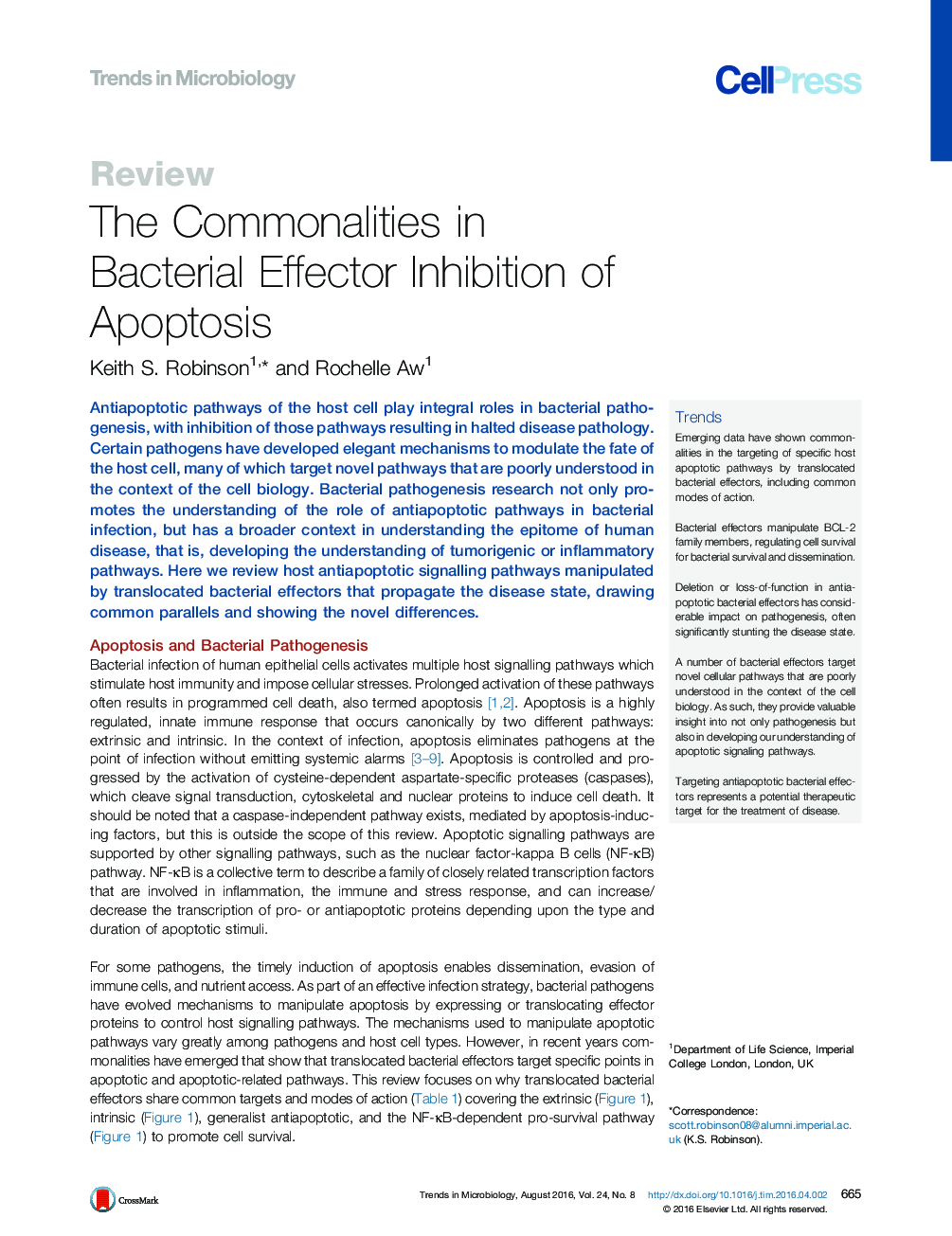| Article ID | Journal | Published Year | Pages | File Type |
|---|---|---|---|---|
| 3421705 | Trends in Microbiology | 2016 | 16 Pages |
Antiapoptotic pathways of the host cell play integral roles in bacterial pathogenesis, with inhibition of those pathways resulting in halted disease pathology. Certain pathogens have developed elegant mechanisms to modulate the fate of the host cell, many of which target novel pathways that are poorly understood in the context of the cell biology. Bacterial pathogenesis research not only promotes the understanding of the role of antiapoptotic pathways in bacterial infection, but has a broader context in understanding the epitome of human disease, that is, developing the understanding of tumorigenic or inflammatory pathways. Here we review host antiapoptotic signalling pathways manipulated by translocated bacterial effectors that propagate the disease state, drawing common parallels and showing the novel differences.
TrendsEmerging data have shown commonalities in the targeting of specific host apoptotic pathways by translocated bacterial effectors, including common modes of action.Bacterial effectors manipulate BCL-2 family members, regulating cell survival for bacterial survival and dissemination.Deletion or loss-of-function in antiapoptotic bacterial effectors has considerable impact on pathogenesis, often significantly stunting the disease state.A number of bacterial effectors target novel cellular pathways that are poorly understood in the context of the cell biology. As such, they provide valuable insight into not only pathogenesis but also in developing our understanding of apoptotic signaling pathways.Targeting antiapoptotic bacterial effectors represents a potential therapeutic target for the treatment of disease.
